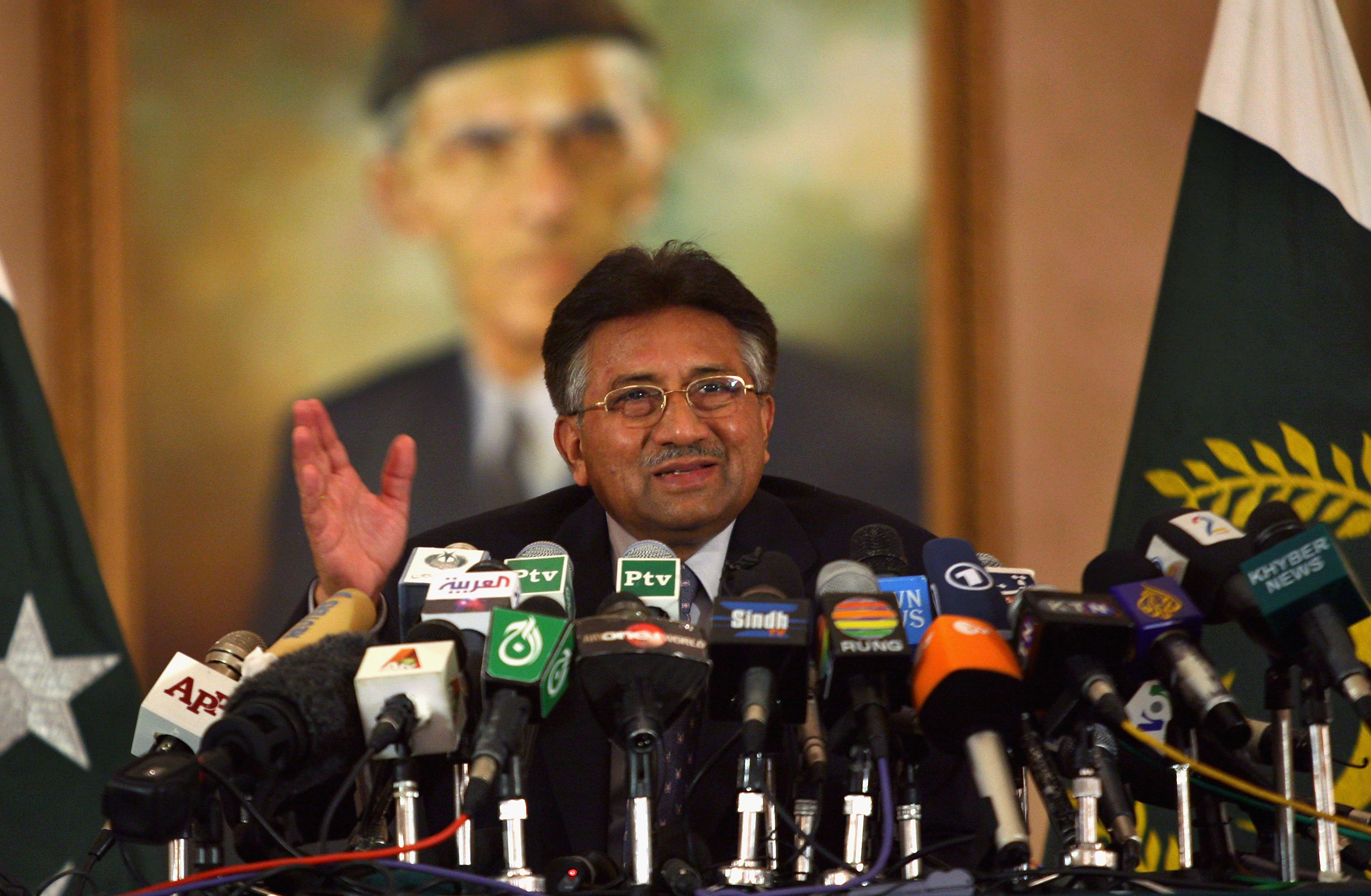Pervez Musharraf, ruler of Pakistan during war on terror, dies at 79


A free daily email with the biggest news stories of the day – and the best features from TheWeek.com
You are now subscribed
Your newsletter sign-up was successful
Pervez Musharraf, the former president of Pakistan who ruled the country during a time of turmoil in the Middle East, has died at the age of 79, the Pakistani military said Sunday.
In a statement sent to CNN, military officials expressed their "heartfelt condolences" on the "sad demise of General Pervez Musharraf," adding that he had passed away in Dubai after battling an ongoing illness.
Pakistan President Arif Alvi also sent his condolences to Musharraf's family, along with Prime Minister Shehbaz Sharif.
The Week
Escape your echo chamber. Get the facts behind the news, plus analysis from multiple perspectives.

Sign up for The Week's Free Newsletters
From our morning news briefing to a weekly Good News Newsletter, get the best of The Week delivered directly to your inbox.
From our morning news briefing to a weekly Good News Newsletter, get the best of The Week delivered directly to your inbox.
Musharraf first came to power as a military leader following a bloodless coup in 1999. He would become Pakistan's president in 2001 and serve until 2008. While president, he would preside over a period of transitional changes in Pakistan, with BBC News noting that the socially liberal Musharraf "was credited by some with turning around the economic fortunes of the country while leader."
Fawad Chaudhury, a former aide of Musharraf, said that "[Musharraf] is called a military dictator, but there has never been a stronger democratic system than that under him" in a statement obtained by Reuters.
In the West, however, Musharraf is most widely known for his strategic alliance with the United States following the Sept. 11 terrorist attacks. Musharraf pledged to support the U.S. during the war on terror, providing material assistance and a pathway for NATO supplies during the fight against the Taliban in Afghanistan.
The alliance forged between the U.S. and Pakistan would eventually pay off when an American raid in 2011 killed the mastermind of the Sept. 11 attacks, Osama bin Laden, who had gone into hiding in Pakistan.
A free daily email with the biggest news stories of the day – and the best features from TheWeek.com
Musharraf would eventually be ousted from power and exiled from Pakistan, and was eventually put on trial for treason and even sentenced to death in an overturned sentence.
Justin Klawans has worked as a staff writer at The Week since 2022. He began his career covering local news before joining Newsweek as a breaking news reporter, where he wrote about politics, national and global affairs, business, crime, sports, film, television and other news. Justin has also freelanced for outlets including Collider and United Press International.
-
 Political cartoons for February 16
Political cartoons for February 16Cartoons Monday’s political cartoons include President's Day, a valentine from the Epstein files, and more
-
 Regent Hong Kong: a tranquil haven with a prime waterfront spot
Regent Hong Kong: a tranquil haven with a prime waterfront spotThe Week Recommends The trendy hotel recently underwent an extensive two-year revamp
-
 The problem with diagnosing profound autism
The problem with diagnosing profound autismThe Explainer Experts are reconsidering the idea of autism as a spectrum, which could impact diagnoses and policy making for the condition
-
 Nobody seems surprised Wagner's Prigozhin died under suspicious circumstances
Nobody seems surprised Wagner's Prigozhin died under suspicious circumstancesSpeed Read
-
 Children trapped 900ft in the air in Pakistani cable car emergency
Children trapped 900ft in the air in Pakistani cable car emergencySpeed Read A helicopter rescue effort has been launched to save the stranded group of eight
-
 Western mountain climbers allegedly left Pakistani porter to die on K2
Western mountain climbers allegedly left Pakistani porter to die on K2Speed Read
-
 'Circular saw blades' divide controversial Rio Grande buoys installed by Texas governor
'Circular saw blades' divide controversial Rio Grande buoys installed by Texas governorSpeed Read
-
 Los Angeles city workers stage 1-day walkout over labor conditions
Los Angeles city workers stage 1-day walkout over labor conditionsSpeed Read
-
 Mega Millions jackpot climbs to an estimated $1.55 billion
Mega Millions jackpot climbs to an estimated $1.55 billionSpeed Read
-
 Bangladesh dealing with worst dengue fever outbreak on record
Bangladesh dealing with worst dengue fever outbreak on recordSpeed Read
-
 Glacial outburst flooding in Juneau destroys homes
Glacial outburst flooding in Juneau destroys homesSpeed Read
